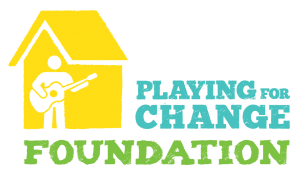WHY MUSIC!
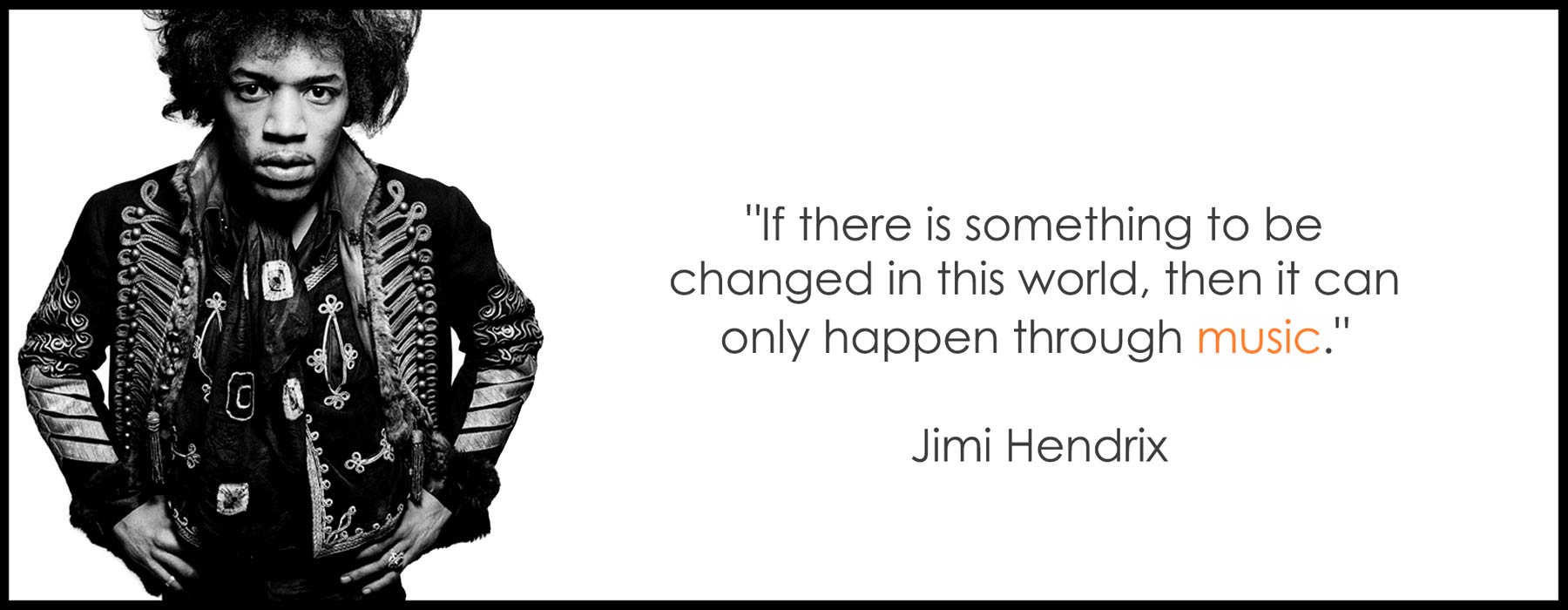
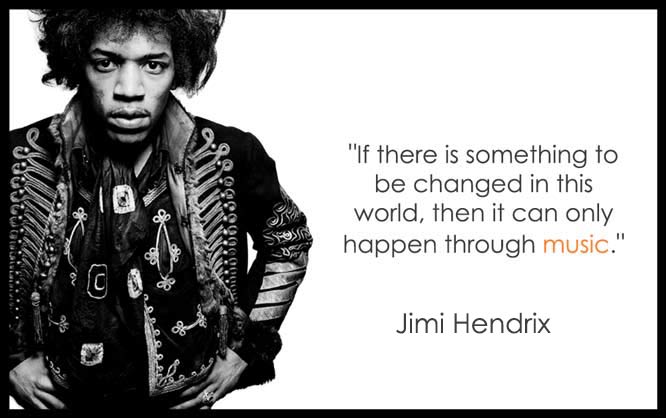
Science has shown that learning music benefits people on many different levels. From enhancing cognitive capacities for children, teens and adults to helping memory, literacy, creativity, self confidence and collaboration skills, the power of music has already been demonstrated by hundreds of scientific studies.
At Playing For Change Foundation, we believe the world would be a better place with more music in it. That's why we employ musicians and music teachers around the world to teach music, using it as a tool for education, inspiration and social change.
Music is also part of the intangible heritage of humanity and by preserving and transmitting traditional music we help new generations to understand their own culture as well as others.
" Young children who take music lessons show different brain development and improved memory over the course of a year, compared to children who do not. "
SOURCE: Nature Neuroscience, April 2007. Dr. Laurel Trainor, Prof. of Psychology, Neuroscience, and Behavior at McMaster University, 2006.

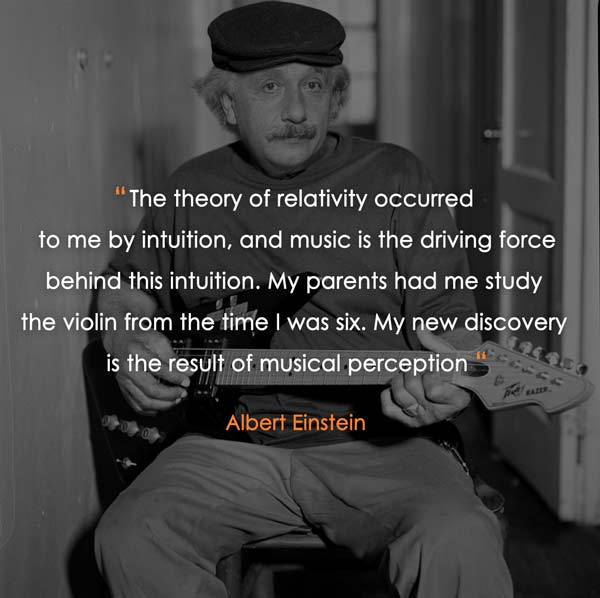
" Music enhances the process of learning. The systems it nourishes, which include our integrated sensory, attention, cognitive, emotional and motor capacities, are shown to be the driving forces behind all other learning."
SOURCE: Nature Neuroscience, April 2007. Dr. Laurel Trainor, Prof. of Psychology, Neuroscience, and Behavior at McMaster University, 2006.
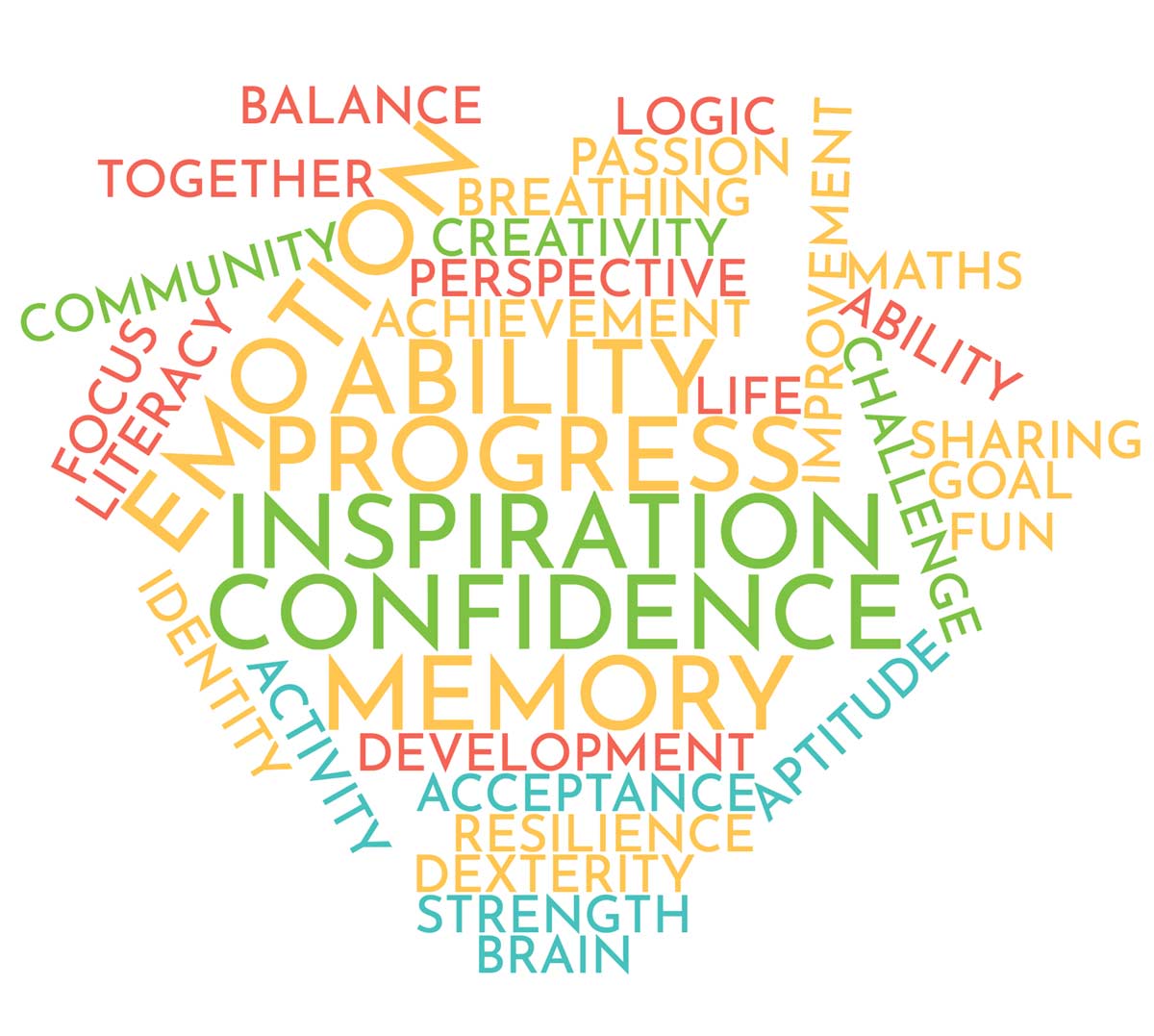
OUTSTANDING PERSONALITIES WHO ARE OR WERE ALSO MUSICIANS:

Albert Einstein | Physicist. Nobel prize | Violin
Neil Armstrong | Astronaut | Tuba
Leonardo Da Vinci | inventor, scientist (...) | multiple instruments
Emily Dickinson | Poet | Piano
Mark Twain | Writer | Guitar, Banjo
Scarlett Johansson | Actress | Vocals
Larry Page | Founder of Google | Saxophone
Louis Braille | Inventor of the Braille system | Organ
Charles Dickens | Writter | Accordion
Thomas Edison | Scientist | Piano
Johnny Depp | Actor | Guitar
Bill Clinton | Politician | Saxophone
Amelia Earhart | Aviator | Piano
Interesting studies about the power of music and music education:
Short-Term music training enhances Verbal intelligence and executive function.
Moreno et al.
Association For Psychological Science, 2011.
90% of the children who participated in a music training program in a research study by Dr. Sylvain Moreno showed remarkably enhanced performance in verbal intelligence and executive function after only 20 days of musical training. (p.1425-1433)
>More info
Promoting Sound Health
Nina Kraus, Ph.D.
Auditory Neuroscience Laboratory, Northwestern University, 2018.
"Music tunes your listening skills, sharpens your mental acuity, and boosts language skills. In children, making music speeds up brain development. In older adults, making music mitigates age-related declines in sound processing. A common argument against daily music education is that it takes time away from teaching fundamentals such as reading and math. But evidence shows that music training actually improves children’s reading and math skills, suggesting that it can pay dividends in more traditional academic domains".
>More info
The neurochemistry of music
Mona Lisa Chanda, Daniel J. Levitin.
Trends in Cognitive Sciences, 2013.
Playing and listening to music reduces levels of anxiety and improves the body's immune system function. In 2013, after reviewing 400 research papers about music and the brain, a team led by Prof. Daniel J. Levitin of McGill University’s Psychology Dept. has been able to show that playing and listening to music has clear benefits for both mental and physical health.
>More info
Long-term musical group interaction has a positive influence on empathy in children
Rabinowitch, Tal-Chen & Cross, Ian & Burnard, Pamela.
Psychology of Music. 41, 2012.
Long-term musical group interaction has a positive influence on empathy in children. A study found that regular participation of school children in musical group interaction sessions can potentially increase their capacity for emotional empathy. Results show that music interaction programme led to an increase in empathy scores in the participating children, but not in control groups that consisted of a games group and the general control group including children who did not take part in any special activity as part of the study. (p.484-498)
>More info
A Musical Mind
Eric Jaffe
Association For Psychological Science, 2013.
Music Lessons Enhance IQ. In research published in 2004, Glenn Schellenberg (a Psychology professor at the University of Toronto at Mississauga) and colleagues (Schellenberg, 2004) arranged for 6-year-olds to receive music lessons or drama lessons for a year, while others received no special lessons. Those in the music group had greater increases in IQ than did those in the other two groups. Researchers have also reported a link between how long a child has played music and school achievement, even with IQ held constant.
>More info
Music Education as a Path to Positive Youth Development: An El Sistema-inspired Program
Marie Hospital, Michelle & Leon Morris, Staci & Wagner, Eric & Wales, Eva.
Journal of Youth Development. 13, 2018.
Results of research that studied the social behaviours of 180 children aged 8 to 17 over a three-year period and also included 178 primary caregivers, revealed that participants who over the course of a school year, participated in ensemble-based after-school music, showed significant increases across all 5 C's (Competence, Confidence, Caring, Character, and Connection). Additionally, findings showed that Miami Music Project students showed greater enhancements over time in Character, Competence and Caring when compared to a group of youth who did not participate in music education. In this type of rigorous orchestral model of musical instruction, youth seem to acquire not only cognitive benefits but also a host of social and emotional enhancements, ostensibly from learning in an environment that requires disciplined social cohesion. (p.149-163).
>More info
Music Makes the Grade
The National Association for Music Education
Schools with music programs have an estimated 90.2% graduation rate and 93.9% attendance rate compared to schools without music education, which average 72.9% graduation and 84.9% attendance.
The power of music: a research synthesis of the impact of actively making music on the intellectual, social and personal development of children and young people.
Hallam, Susan, 2015.
Miszka (2010) investigated the relationships between participation in a range of musical ensembles and community ethics in a very large sample of pupils in over 600 schools. Music participation was related to community ethics including having strong friendships, helping people in the community and working to correct social and economic inequalities. (p.84)
>More info
Increased Functional Connectivity After Listening To Favored Music In Adults With Alzeihmer Dementia
King et al.
The Journal of Prevention of Alzheimer’s Disease, 2019;6(1):56-62
Memories of music cannot be lost to Alzheimer's and dementia. This is what a group of researchers found after examining 17 individuals with a clinical diagnosis of Alzheimer's disease-related dementia. Participants listening to preferred music showed specific activation of a region that has been associated with memory for familiar music that is typically spared in early Alzheimer's disease. They also found a widespread increase in functional connectivity in corticocortical and corticocerebellar networks following the presentation of preferred musical stimuli.
>More info
